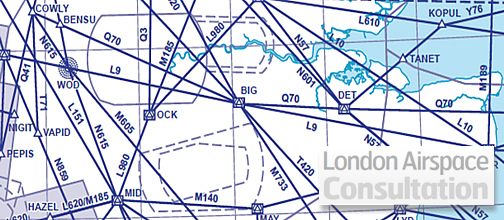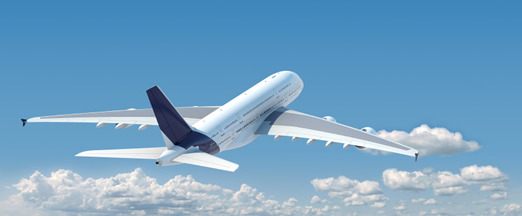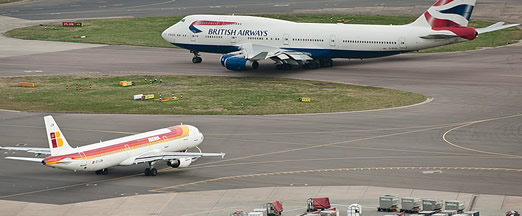Small changes add up to big fuel savings
20 November 2013Recent changes to how we use UK airspace have enabled our airline customers to save an extra 8,000 tonnes of fuel every year.
This means 13,000 tonnes of fuel savings have been enabled since April, worth £8.5m to airlines (based on average fuel prices of £660 per tonne) and the equivalent to 41,000 tonnes of CO2. All of which is helping us to make inroads into our near term goal to enable a 4% average saving to CO2 emissions per-flight by the end of 2014.
Since our ‘Acting Responsibly’ programme began in 2008, we’ve made procedural and operational changes that have enabled a 1.9% reduction in average CO2 emissions per flight, equating to 134,000 tonnes of annual fuel savings and 425,000 tonnes of CO2 emissions, worth around £90m to our airline customers in reduced fuel costs.
However, the longer our programme goes on the harder it has become make the big savings we were able to early on without wholesale airspace redesign – something that is a few years down the road. That’s why we have to keep finding more innovative ways to make savings if we’re to meet our near term goal.
Our Airspace Efficiency Groups, based at our Swanwick and Prestwick control centres, work with the operational teams to find better ways of using our airspace in order to identify new ways of working that will enable extra savings.
I strongly believe that having people with operational experience involved is absolutely vital when generating the ideas that can lead to real changes and benefits. And from reviewing the use of level caps, night time routes and flight profiles we’ve been able to uncover a number of new and ways to make savings.
For example, following negotiation with the Ministry of Defence, a route previously restricted to civil aviation is now available for us to use over longer periods and in both directions instead of just one way. We have also developed a new process that enables us to make better use of MoD training areas when they’re not in use by the military. Both of these changes will help us offer airlines more direct routes, thereby saving them fuel and lowering carbon emissions.
These are quite small changes when taken in isolation, but they can really add up to meaningful benefits to airlines when you consider the complexity and capacity of UK airspace.
Comments
Please respect our commenting policy and guidelines when posting on this website.





